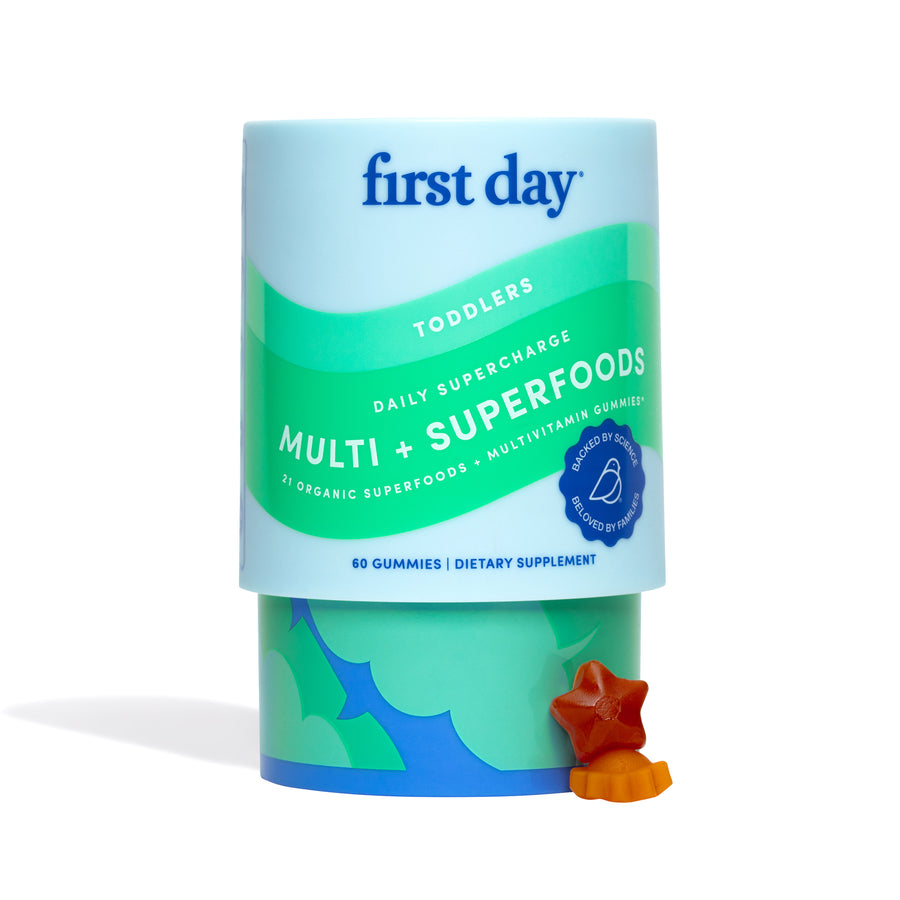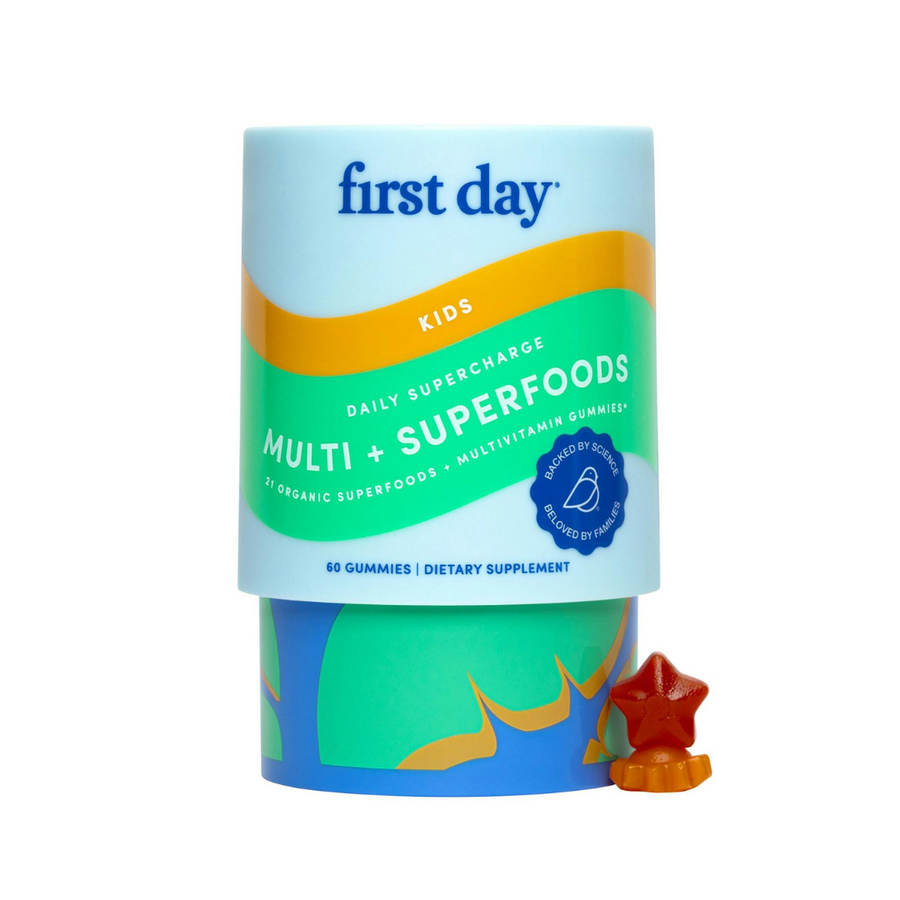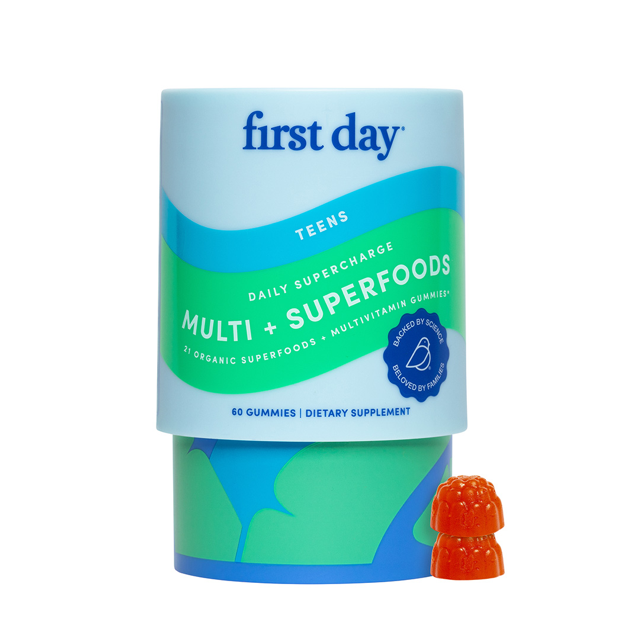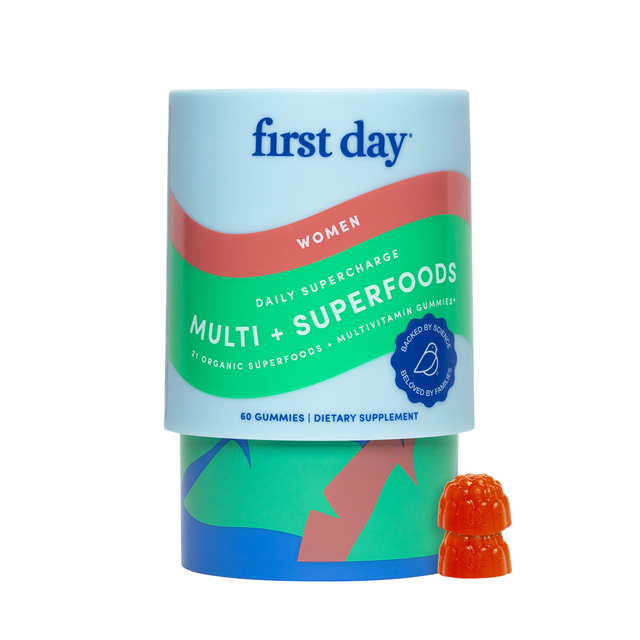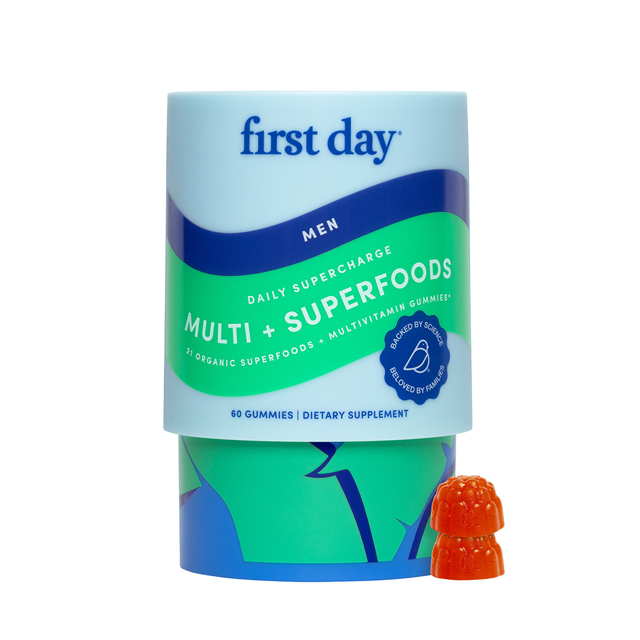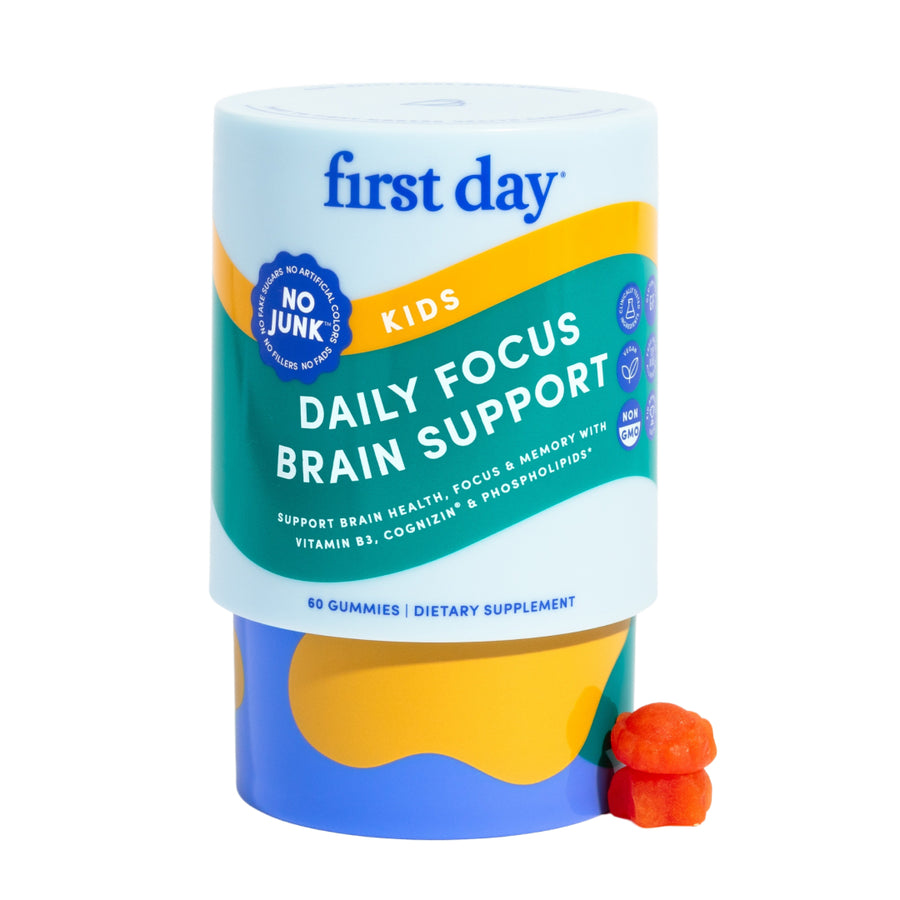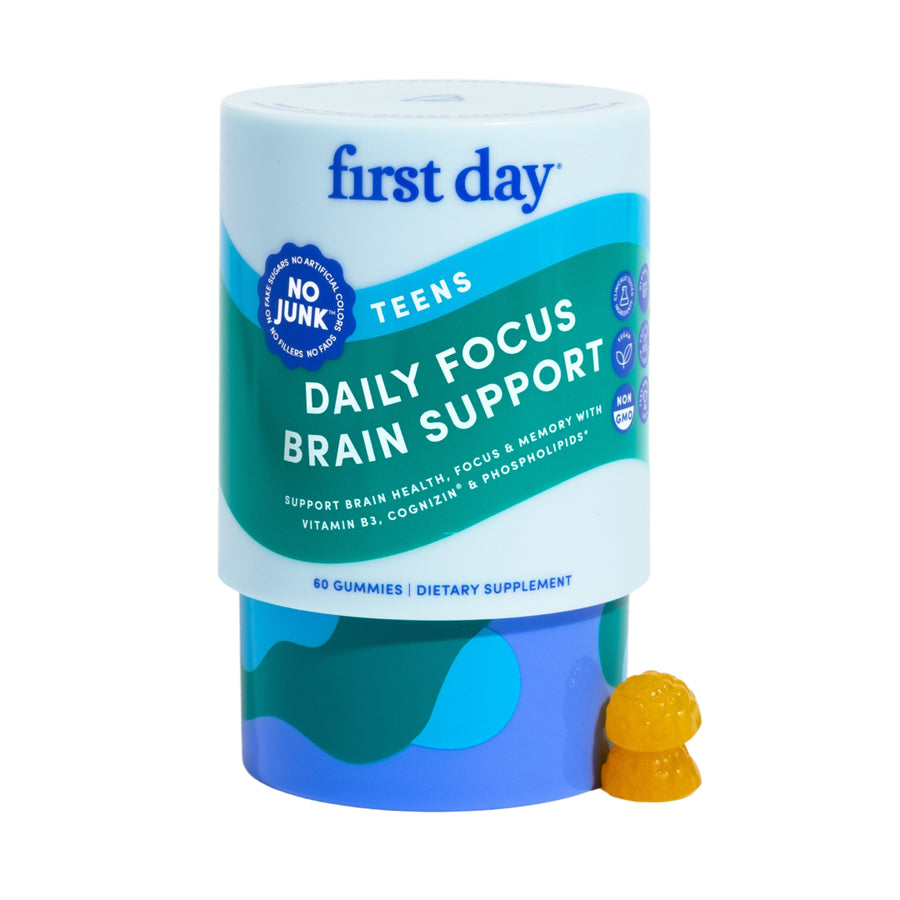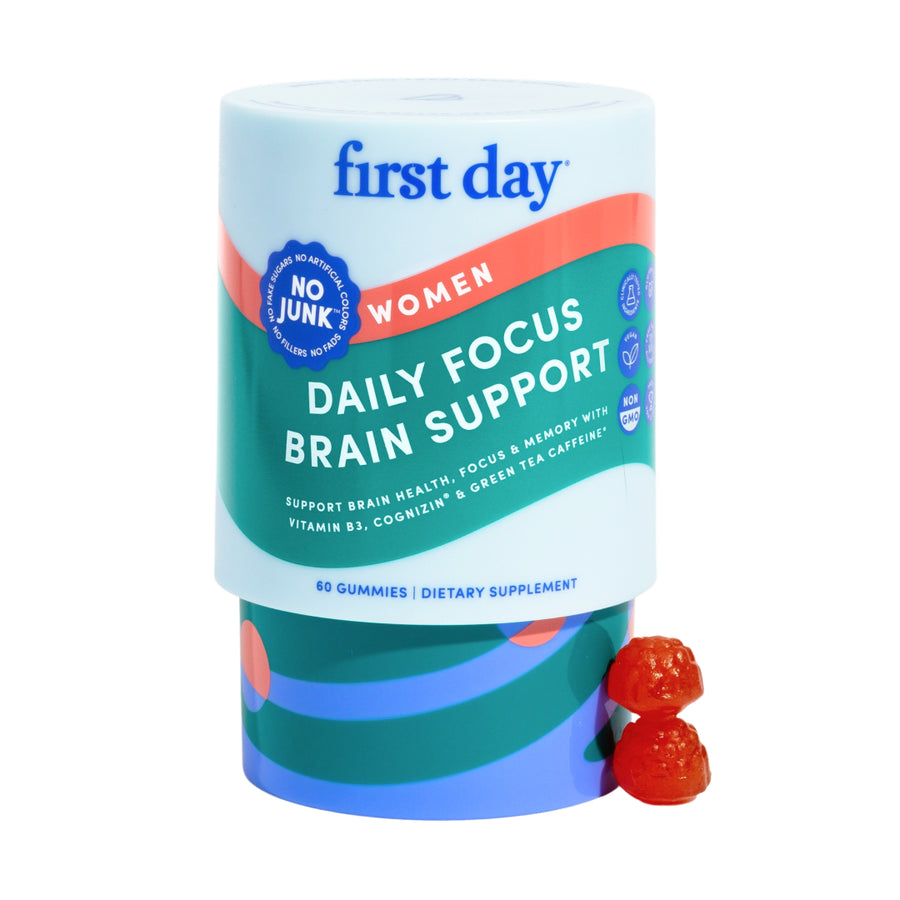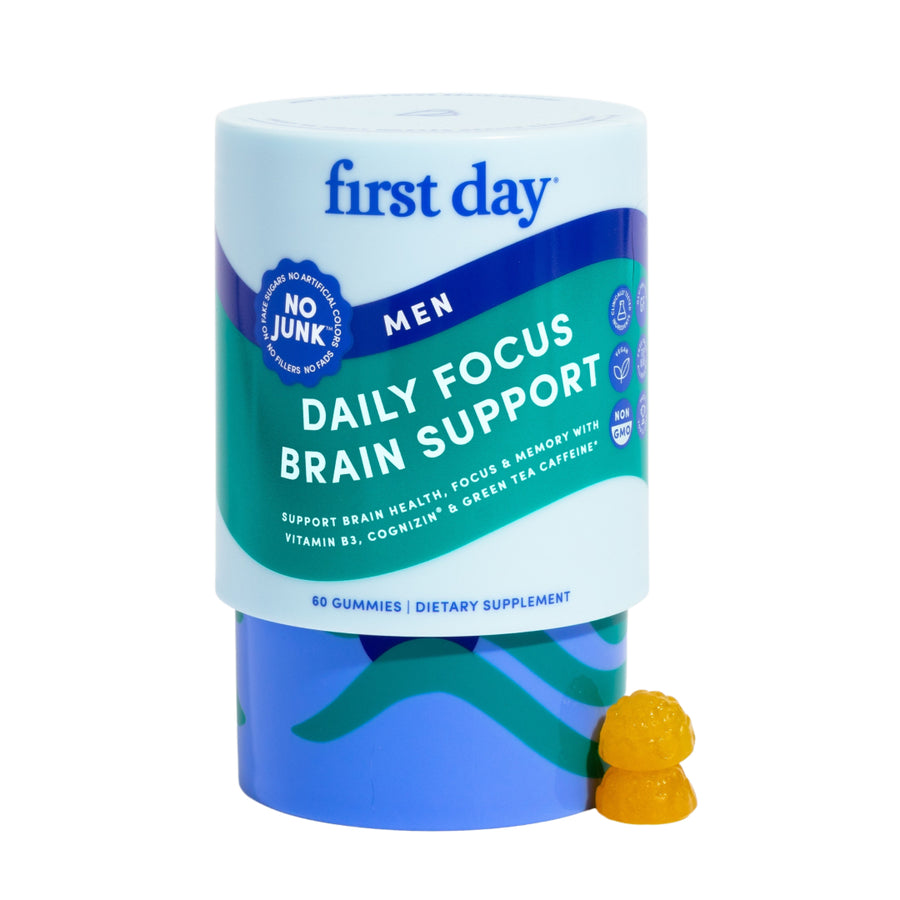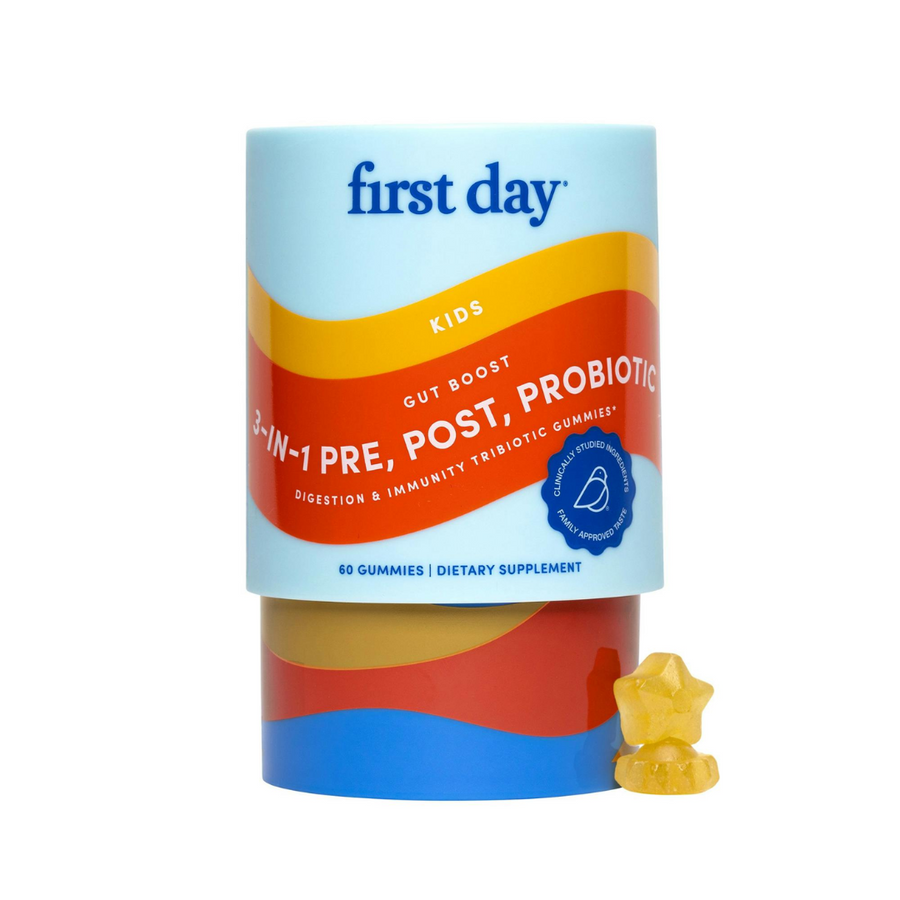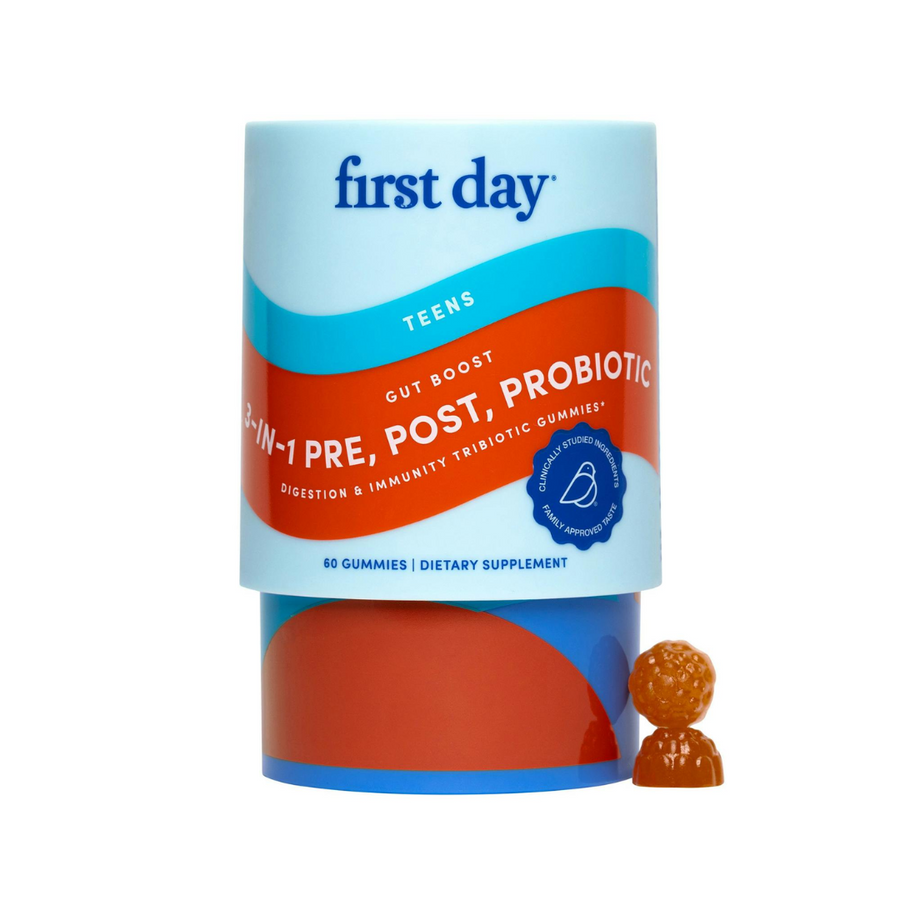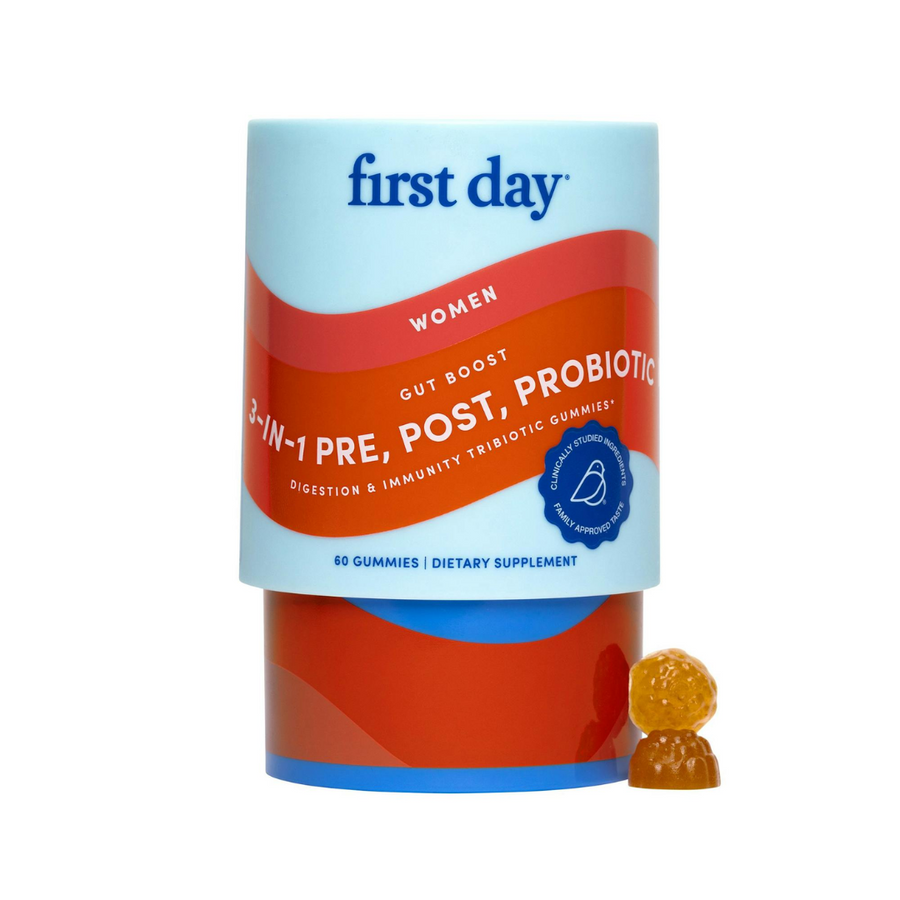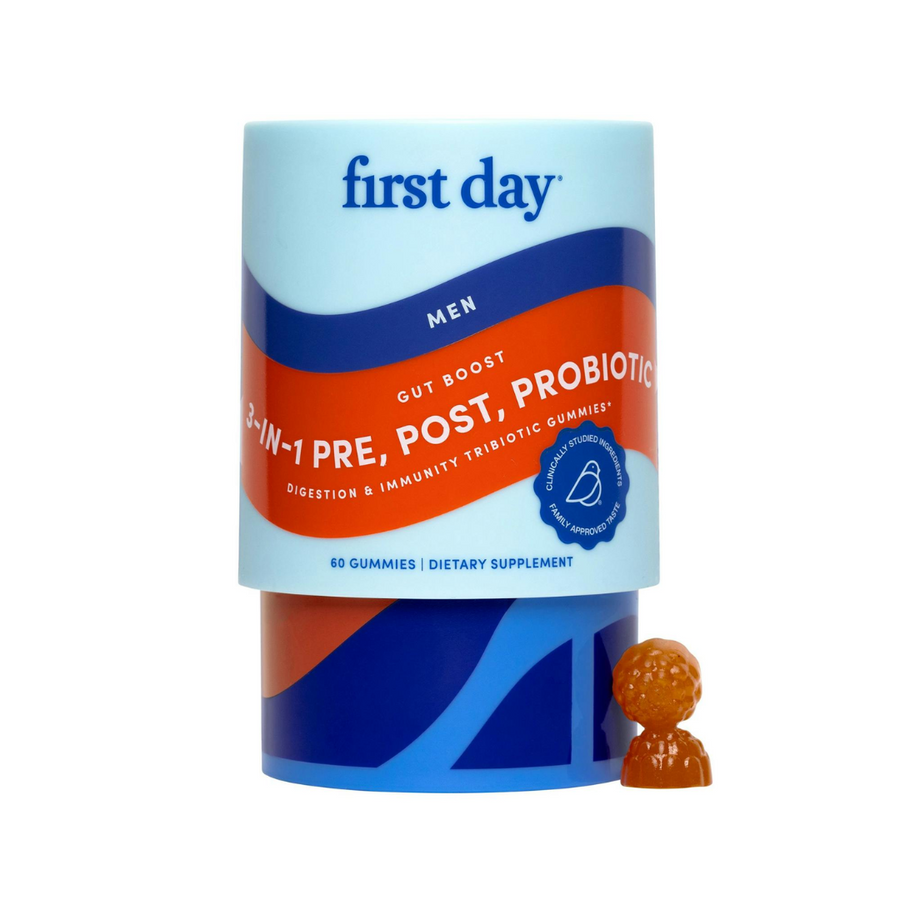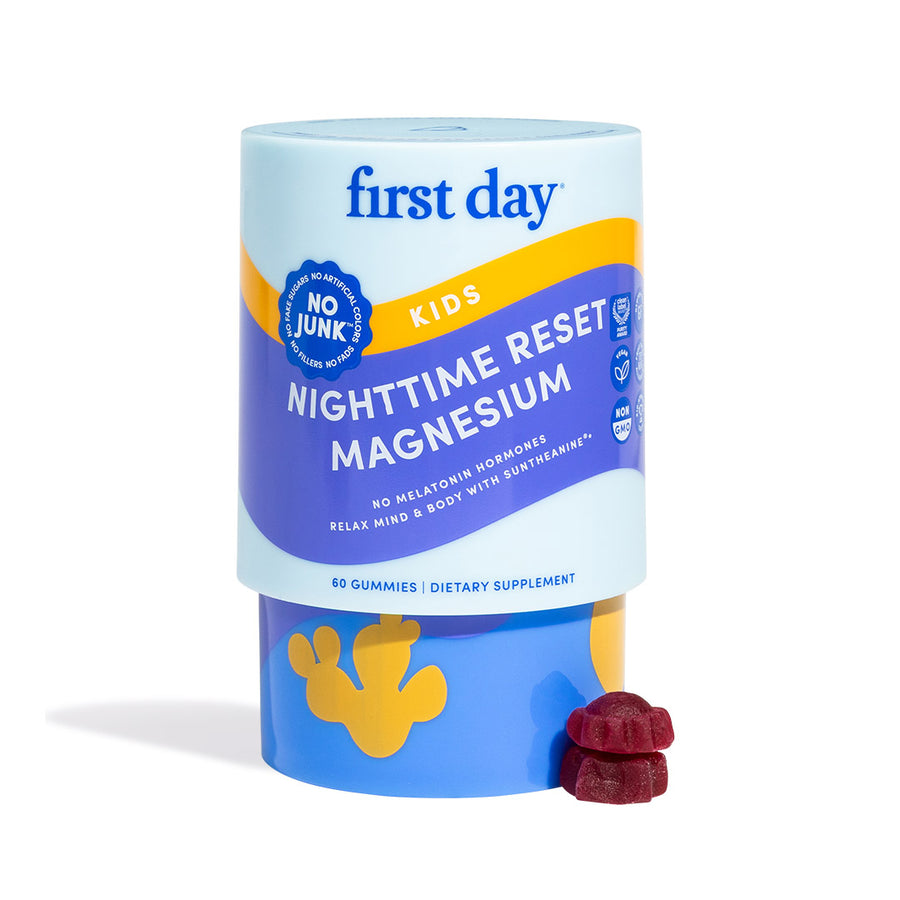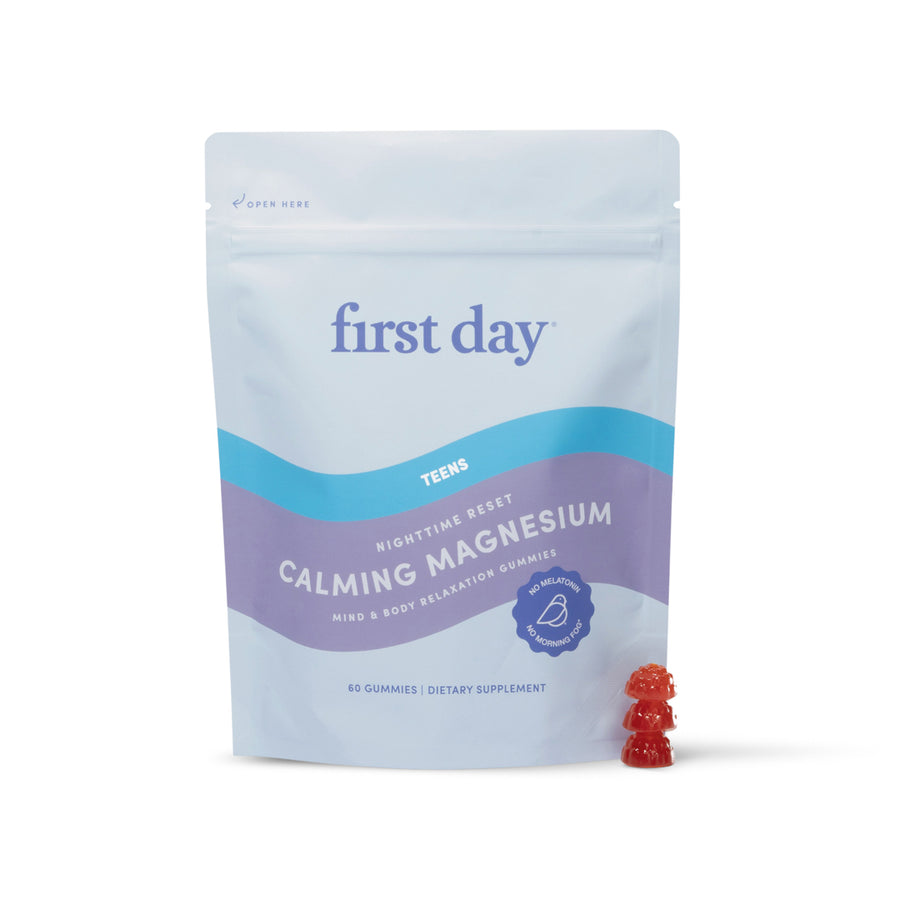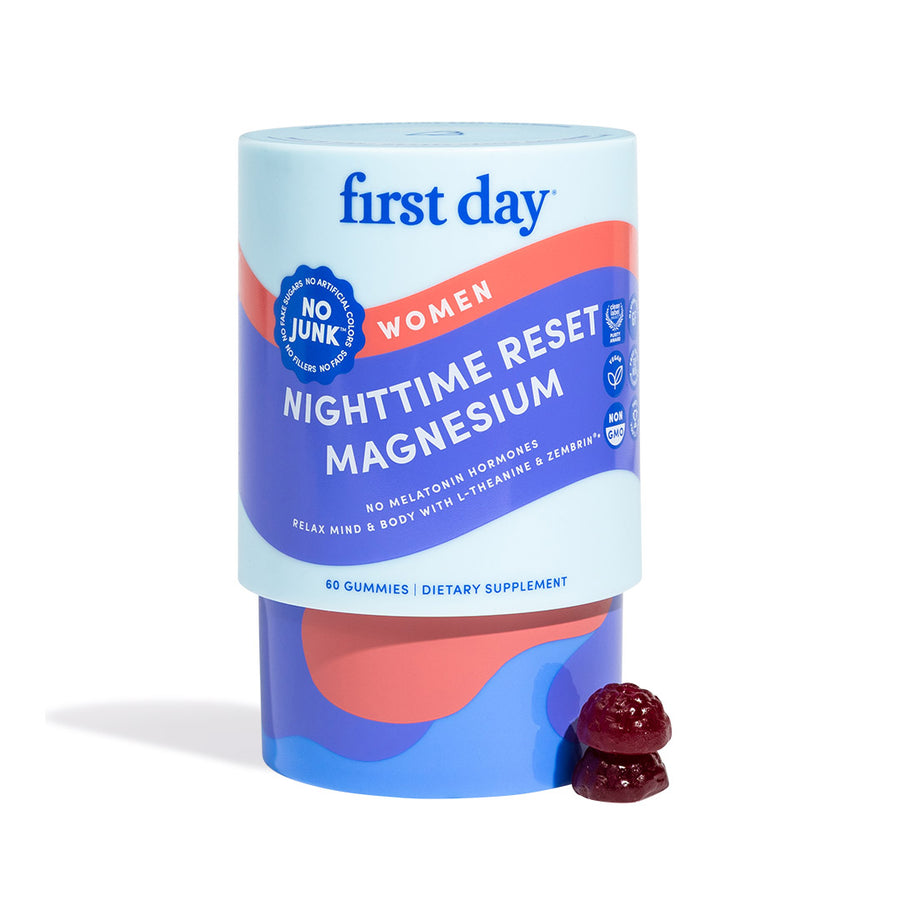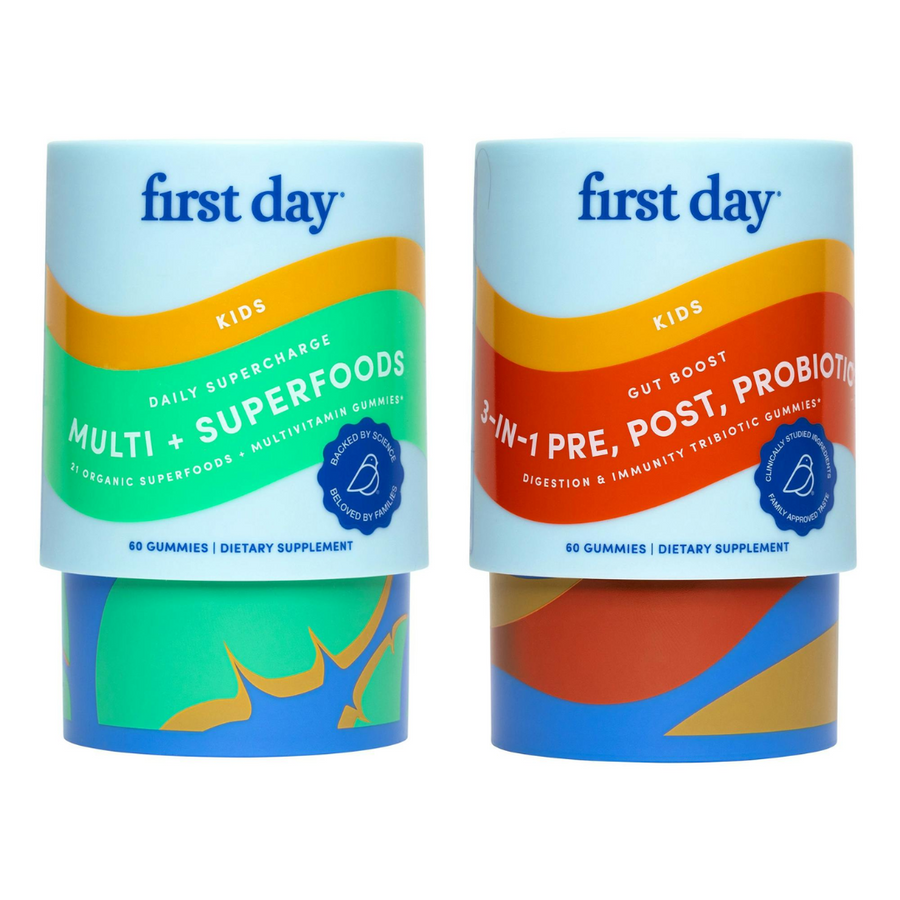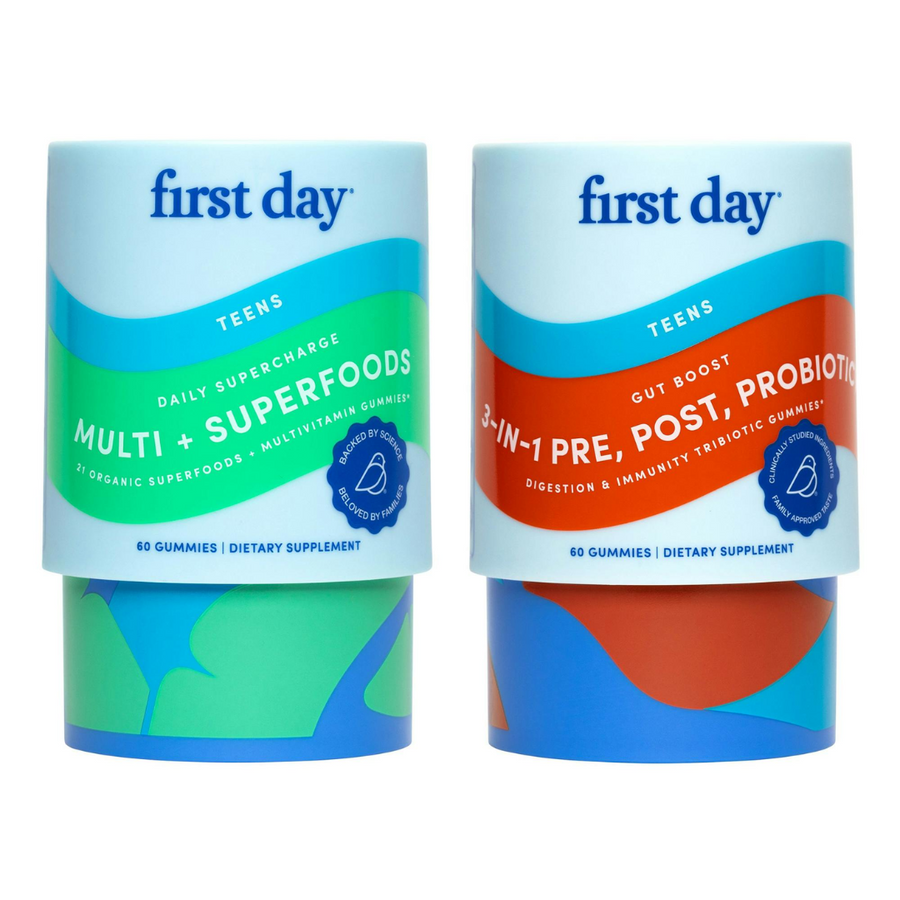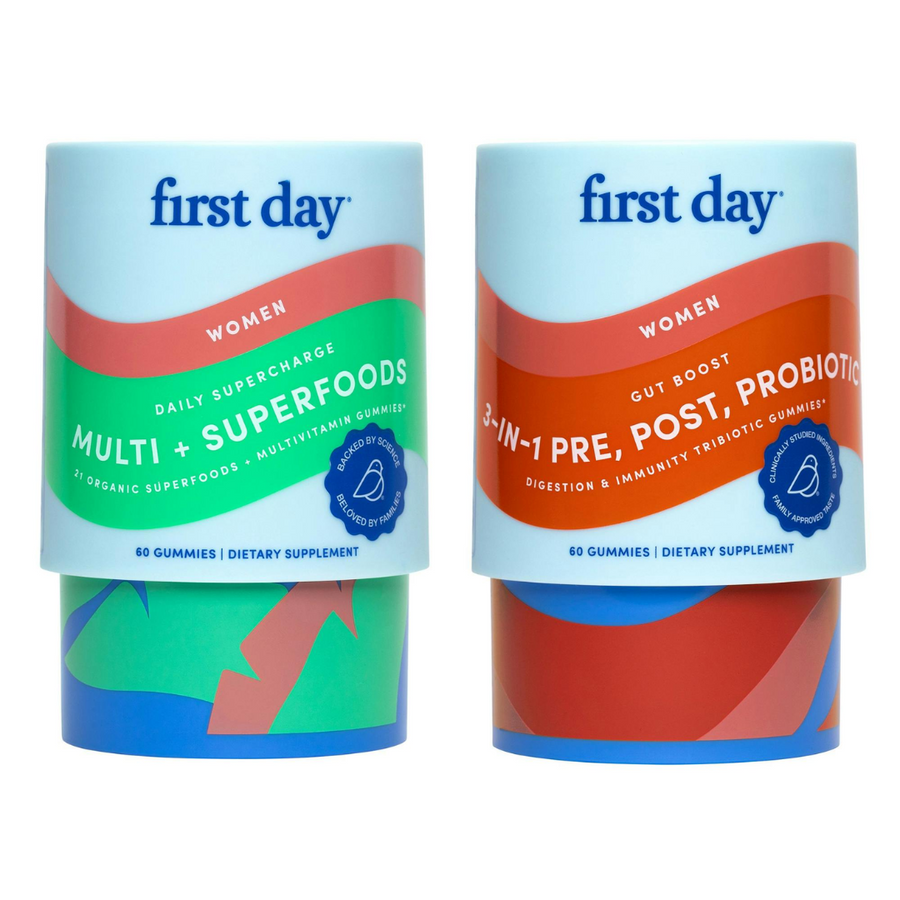Prebiotic vs probiotic - often seems like a match made in the gut-health arena, but what's the real scoop? When you break it down, the prebiotic vs probiotic showdown isn't about competition; it's more like a fantastic partnership.
Think of prebiotics as the behind-the-scenes supporters, feeding and nurturing probiotics, the stars of the show, to help them thrive in your gut. Together, they form a dynamic duo that could seriously improve digestive health.
In this guide, we'll crack the mystery behind prebiotic vs probiotic, showing you how each plays a vital role in maintaining your body's wellness.
Prebiotic vs. Probiotic: Let’s Start at the Beginning
Ever heard of the phrase "you are what you eat"? When it comes to gut health, this couldn't be more true. Here's the lowdown on these essential components of gut health.
What Are Prebiotics?
Prebiotics are the ultimate food for those beneficial gut bacteria or probiotics living in your digestive system. Think of them as the fertilizer that helps your good gut bacteria grow strong and flourish.
They consist mainly of complex carbohydrates like fiber, which human enzymes cannot digest. Instead, these fibrous compounds travel to the lower digestive tract, where they become a feast for beneficial bacteria. When prebiotics hit your gut, they're like a party for your gut's good bacteria, turning into short-chain fatty acids (SCFAs). These little guys then help to keep your gut lining strong, knocking down inflammation, and fueling your colon cells with energy. So, this whole process is a massive health boost for your gut, making sure it's feeling good inside and out.
You can find these non-digestible fibers in high-fiber foods such as bananas, onions, garlic, asparagus, and whole grains. A diet rich in these foods can support your gut microbiome and overall well-being. You can also take prebiotic supplements to help boost your intake.
But why should we care about feeding our gut bacteria? Well, science has got some compelling answers. According to research, a diet rich in prebiotics can lead to improved digestion, better immune function, and a reduced risk for chronic diseases. For instance, a study published in the Springer Journal suggests that prebiotics can help enhance calcium absorption, which is great news for bone health.
What Are Probiotics?
Probiotics are often called the good guys when it comes to your gut's ecosystem. They are live bacteria that reside in your digestive system and play a pivotal role in maintaining your gut health. Now, before you cringe at the thought of bacteria being beneficial, hear us out! These microscopic heroes are essential for digestion, help fend off harmful bacteria, and can even boost your immune system.
Probiotic-rich foods include fermented foods like Greek yogurt, sauerkraut, kimchi, and kefir, as well as dietary supplements. Each of these probiotic foods is a bustling metropolis of bacteria, but the good kind that your digestive system loves.
The impact of probiotics on health is well-documented. For instance, the Cureus journal has highlighted research showing that probiotics can be effective in treating conditions like irritable bowel syndrome (IBS), certain infectious diarrhea, and even antibiotic-associated diarrhea. Yes, those tiny organisms can do all that!
But how do they work exactly? Probiotics help balance your gut's microbiome, the community of microorganisms living in your digestive tract. Not to mention, This balance is crucial not just for digestion, but for your overall health. Disruptions in this balance can lead to digestive issues, and may even contribute to mental health conditions like depression and anxiety, as suggested by Harvard Health.
Types of Probiotic Strains
Imagine your gut as a bustling city, and probiotics are the diverse inhabitants keeping the city in harmony. Among these inhabitants, live bacteria and spore-based probiotics stand out, each with its own special functions.
Live bacteria, such as Lactobacillus and Bifidobacterium, are actively involved in maintaining a healthy digestive environment, aiding in breaking down food and keeping harmful bacteria in check. On the flip side, we have spore probiotics, such as those from the Bacillus species. They enter the body in a dormant, spore form, encapsulated in a natural protective shield. This armor allows them to safely pass through the acidic environment of the stomach without harm. Once they arrive in the gut, they spring to life, ready to take action. Their resilience makes them exceptionally effective, with studies suggesting that spore probiotics can significantly improve gut health by enhancing the gut flora's diversity and function.
That's why, our research team, here at First Day harnesses the power of Bacillus coagulans SNZ 1969® in our revolutionary tribiotics. As one of the best science-backed probiotic supplements does more than just support digestion; it's a triple threat that boosts immunity, aids in digestion, and even promotes oral health. The beauty of tribiotics is the perfect blend of prebiotics, probiotics, and postbiotics to support your gut health fully.
We believe in harnessing the power of good science to support everyday wellness. That's why our tribiotics are designed to meet the needs of your entire family, providing a foundation for vibrant health from the inside out.
Interested in taking the first step towards healing the gut for your whole family? Jump into the world of beneficial bacteria and let's kickstart your family's wellness journey today. Discover the health benefits of our tribiotics and give your family the gift of health.
So, Prebiotics vs. Probiotics or Both?
When it comes down to it, the question of prebiotics vs. probiotics isn't a competition but a collaboration, where each plays a vital role in supporting our gut health.
Consider prebiotics the ultimate comfort food for your gut's beneficial bacteria, supplying them with their preferred fiber-rich treats. This nourishment keeps them satisfied and flourishing, enabling them to execute their vital roles effectively. On the other hand, probiotics act as reinforcements to your gut's microbial community, ensuring stability and support, maintaining a harmonious balance.
But why stop at just two when you can introduce the power of postbiotics into the mix? With First Day's revolutionary tribiotics, you're not just getting the benefits of prebiotic or probiotic supplements, but also the added boost of postbiotics to round out your gut health strategy.
It's time to put your family's gut health at the forefront of your wellness journey. Make a move today towards a happier, healthier gut with First Day's tribiotics.
Xiong, R.-G., Zhou, D.-D., Wu, S.-X., Huang, S.-Y., Saimaiti, A., Yang, Z.-J., Shang, A., Zhao, C.-N., Gan, R.-Y., & Li, H.-B. (2022). Health Benefits and Side Effects of Short-Chain Fatty Acids. Foods, 11(18), 2863. https://doi.org/10.3390/foods11182863
Whisner, C. M., & Castillo, L. F. (2017). Prebiotics, Bone and Mineral Metabolism. Calcified Tissue International, 102(4), 443–479. https://doi.org/10.1007/s00223-017-0339-3
Sharma, S., Kumar, S., Sajjad, S., & Sharma, S. (2023). Probiotics in Irritable Bowel Syndrome: A Review Article. Cureus. https://doi.org/10.7759/cureus.36565
Publishing, H. H. (2021, April 19). The gut-brain connection. Harvard Health. https://www.health.harvard.edu/diseases-and-conditions/the-gut-brain-connection#:~:text=A%20troubled%20intestine%20can%20send
Office of Dietary Supplements - Probiotics. (n.d.). Ods.od.nih.gov. https://ods.od.nih.gov/factsheets/Probiotics-HealthProfessional/#:~:text=The%20seven%20core%20genera%20of
Casula, G., & Cutting, S. M. (2002). Bacillus Probiotics: Spore Germination in the Gastrointestinal Tract. Applied and Environmental Microbiology, 68(5), 2344–2352. https://doi.org/10.1128/aem.68.5.2344-2352.2002
Shiqi Zhang, Pinglan Li, Suwon Lee, Yu Wang, Chunming Tan, Nan Shang. Weizmannia coagulans: an ideal probiotic for gut health https://doi.org/10.26599/FSHW.2022.9250002
Kang, S., Park, M. Y., Brooks, I., Lee, J., Kim, S. H., Kim, J. Y., Oh, B., Kim, J. W., & Kwon, O. (2021). Spore-forming Bacillus coagulans SNZ 1969 improved intestinal motility and constipation perception mediated by microbial alterations in healthy adults with mild intermittent constipation: A randomized controlled trial. Food Research International, 146, 110428. https://doi.org/10.1016/j.foodres.2021.110428

